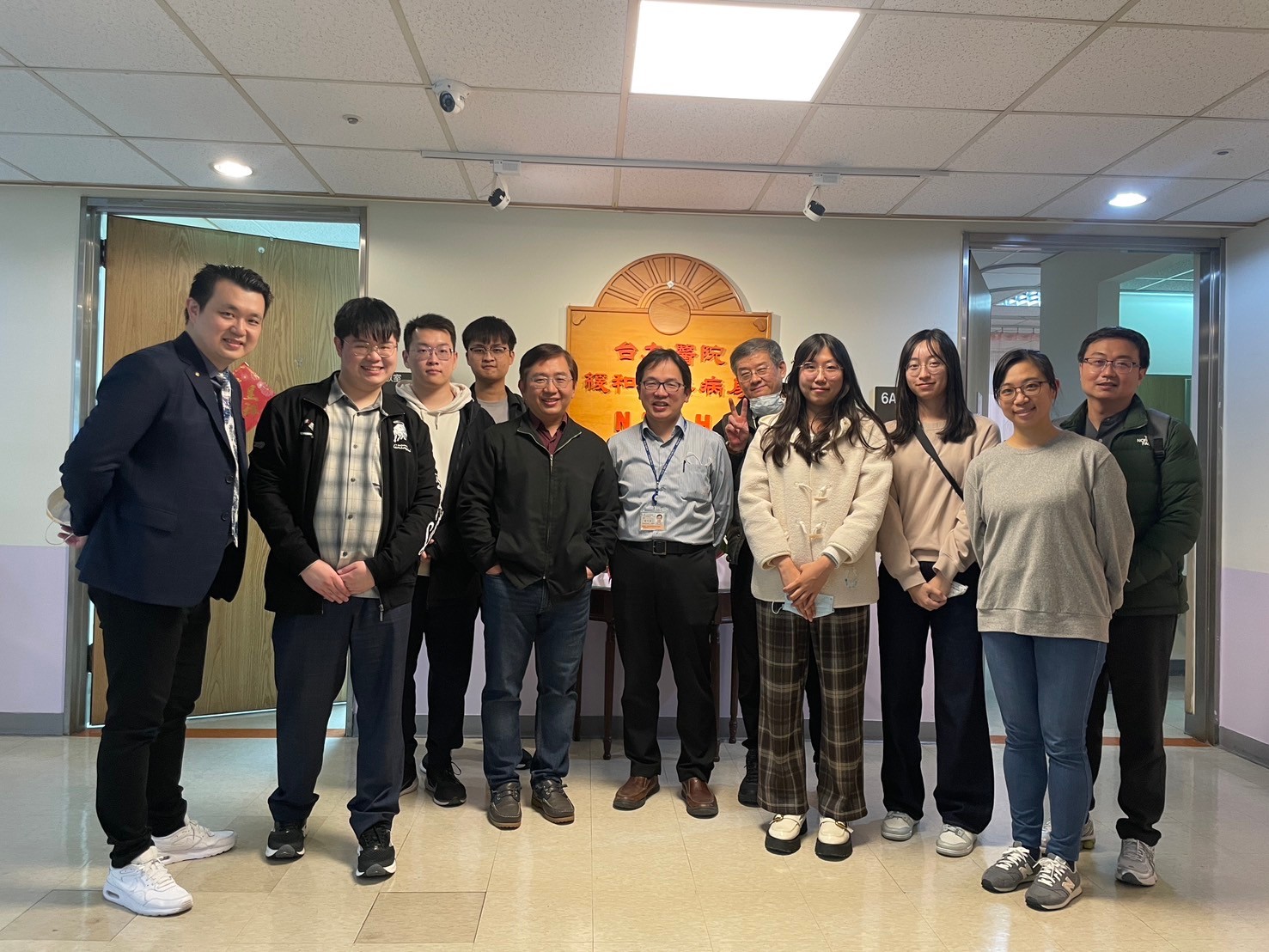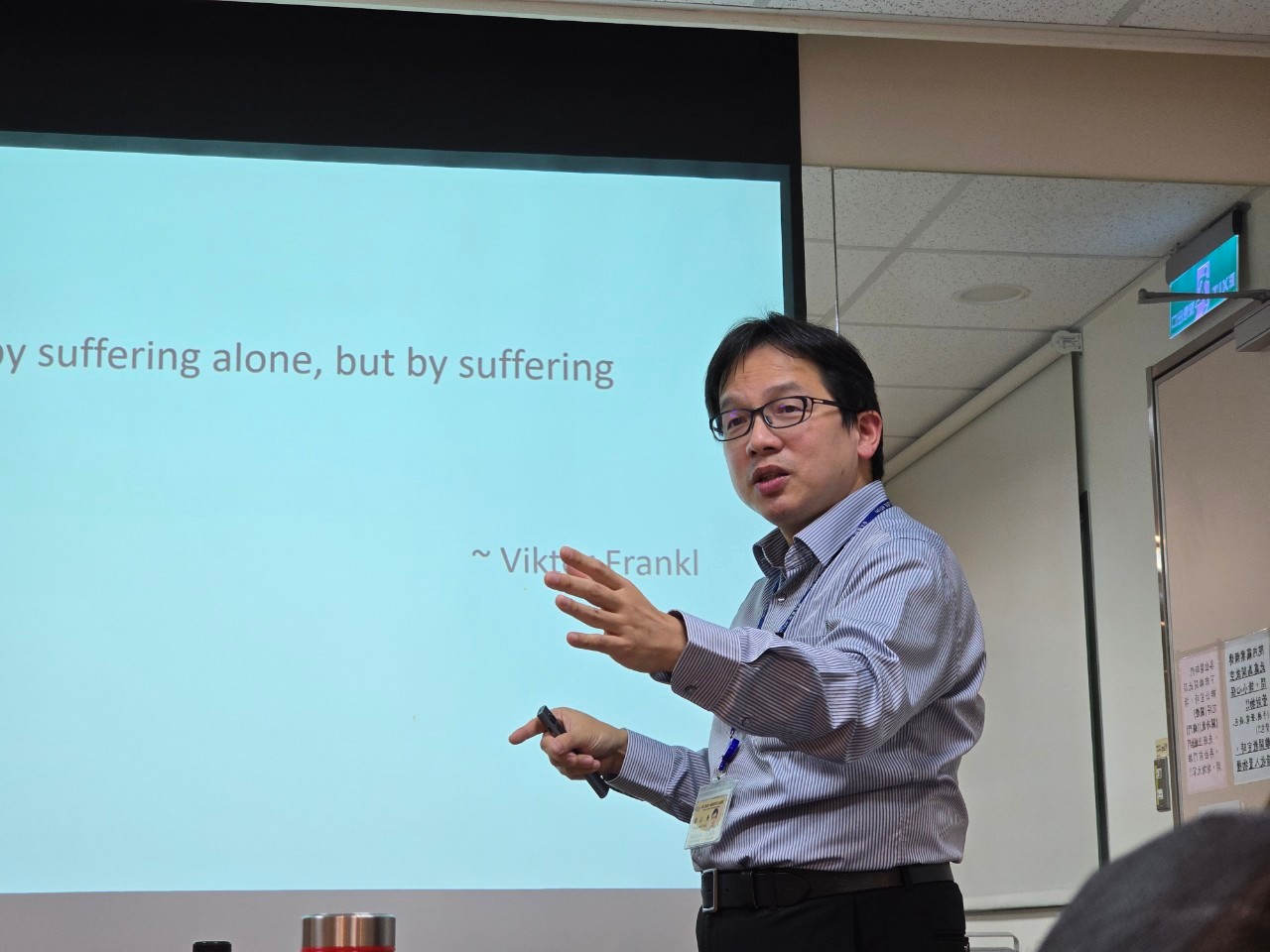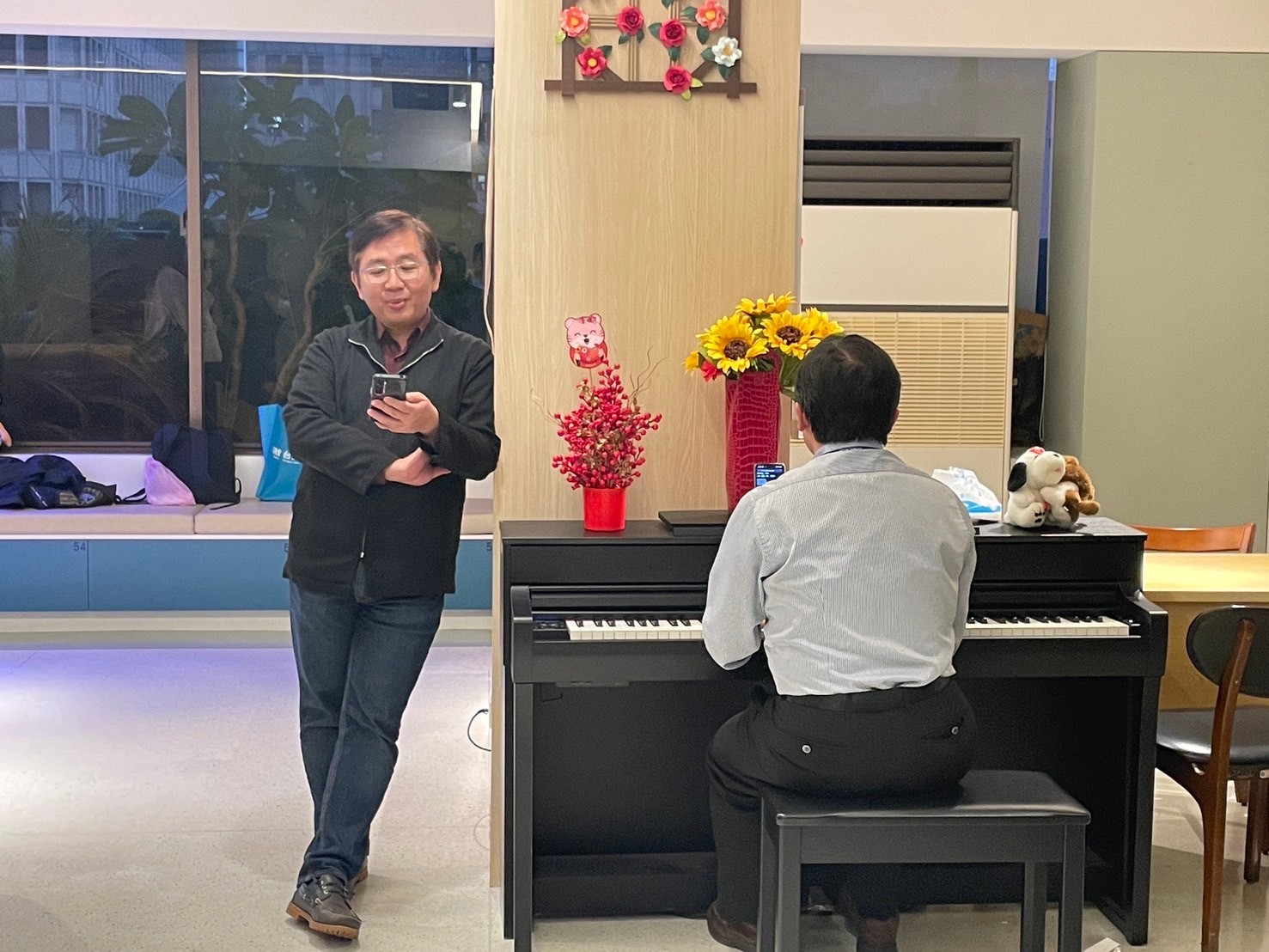


(Group Photo: Assistant Professor Chang Pin-Hsuan, students from the Graduate Institute of Medical and Biotechnology Law, and Director Peng Jen-Kuei (center))
On February 27th, Assistant Professor Chang Pin-Hsuan of Taipei Medical University's Graduate Institute of Medical and Biotechnology Law led a group of students on a visit to the Palliative Care Unit of National Taiwan University Hospital's Department of Family Medicine. The visit, personally guided by the unit's director, Dr. Peng Jen-Kuei, unfolded into a deeply moving dialogue about life.
Dr. Peng and his team have long been dedicated to palliative care, understanding that facing the end of life requires not only medical expertise but also profound humanistic concern. Beyond the physical pain, the inner feelings and unfulfilled wishes of patients and their families need to be delicately perceived and understood. Therefore, the medical team, through sincere "communication," builds a trusting doctor-patient relationship, becoming a pillar of emotional support for patients and their families.
Dr. Peng emphasized that guiding patients and their families to complete the "Four Farewells" – expressing gratitude, offering apologies, sharing love, and saying goodbye – is a constant goal of the palliative care team within the limited time available. The practice of these "Four Farewells" not only allows patients to pass away peacefully but also comforts the hearts of their families, bringing peace to both the living and the departed.

(Photo: Director Peng during the teaching process)
During the visit, students participated in simulated scenarios, putting themselves in the shoes of patients and their families to experience their struggles and reluctance. They learned how to use empathy to provide the most appropriate support and comfort. "If you had only one month left to live, what would you do?" Dr. Peng's question sparked profound reflection on the meaning of life. A highlight from the course include, the moment when the song "The Ocean" by Chang Yu-Sheng was played, its warm melody soothed everyone's heart. Music became a bridge connecting patients, families, and the medical team, allowing love and care to flow freely.

(Photo: Director Peng and Professor Chang collaborating in a demonstration)
The Intersection of Law and Medicine: Respecting Patient Autonomy and Ensuring the Right to a Good Death
The legislative spirit of the Patient Right to Autonomy Act and the Hospice Palliative Care Act is to respect patients' autonomous wishes and protect their right to a good death. This visit deeply impressed upon the students of the Graduate Institute of Medical and Biotechnology Law that law and medicine are not cold, detached professions, but are intrinsically linked to "people." In the face of life, law and medicine should work hand in hand, using comprehensive legal systems and compassionate medical care to jointly safeguard the dignity of every life.
This visit to NTUH's Palliative Care Unit was not only a lesson in life education but also a spiritual purification. It reminded us that, while pursuing professional knowledge, we must not forget to care for the essence of life, learning to accompany each life to its end with empathy and compassion. At the same time, it also allowed us to gain a deeper understanding of how the law provides protection and support for people at the end of life.